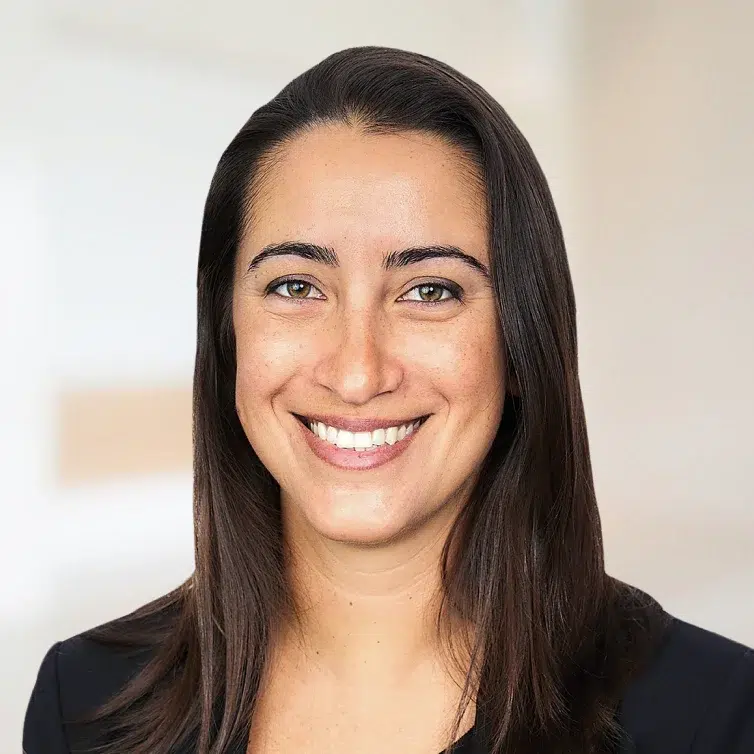
Turning 18 is a significant milestone marking the transition into adulthood. Being a young adult carries new responsibilities, privileges and challenges—including legal and financial ones. As you are preparing to head off to college, taking a gap year or jumping straight into adulting, now is a great time to begin thinking about and planning for your financial future. In this article, we’ll highlight four financial tips to help with that transition.
Tip #1 – Open Checking and Savings Accounts
Before opening a bank account, let’s have a refresher on what checking and saving accounts are and their purpose:
- Checking account – Your checking account is primarily used for everyday transactions such as making purchases or paying bills. Keep at least one month’s worth of expenses in your checking account as a rule of thumb.
- Savings account – Your savings account is primarily used to hold money you don’t plan to immediately spend while earning interest on the balance. It can be used to help you build up savings for your emergency fund or future financial goals. Check out Making It On Your Own: Saving to learn the benefits of saving money.
By opening these two foundational accounts, you will begin to establish your financial history, which is important for future financial endeavors like getting a loan or a credit card. You will also foster good budgeting habits and build an emergency savings fund.
Now you can determine what type of banking best suits your needs. According to a recent Forbes Advisor article, “Online banks are better than traditional banks when it comes to minimizing fees and securing the most competitive rates. These banks also tend to offer superior websites and mobile apps with more features.” The article also noted that when it comes to finding a full range of financial services all in one place, traditional banks tend to win out. Keep in mind, “choosing a bank is rarely a one-off process,” notes this Investopedia article. They remind us that the best bank for you will ultimately change throughout your lifetime as your financial goals evolve.
When choosing a bank or credit union, consider the following:
- Security – Make sure your funds are safe in the event of a bank or credit union closure. Check to see if the bank is insured by the Federal Deposit Insurance Corporation (FDIC) or by the National Credit Union Administration (NCUA) if it’s a credit union.
- Location – Check for any banking offices and ATMs conveniently located near your home, school or work.
- Fees – Look into any fees associated with having an account, whether it’s monthly maintenance fees or transaction fees.
- Technology – Check to see what digital capabilities they offer. Do they offer an online banking mobile app that allows you to check your account balance, initiate transfers between your accounts or deposit a check through your mobile device?
- Customer service – Look for a bank or credit union that offers good customer service, whether it’s in-person or over the phone
Once you find a bank or credit union that offers the services you need you can open your own account. If you currently have a minor account, consider converting the account to an individual account.
Tip #2 – Establish Credit
If used responsibly, a credit card is a great tool to help establish a credit history early on, which can help build a strong credit score over time. A good credit score will make it easier to get approved for loans (mortgage, auto and personal), qualify for lower interest rates on loans and credit cards, and qualify for higher credit limits on your credit cards.
Here are some healthy credit card habits:
- Before applying for a credit card, get familiar with how they work so you can use them responsibly.
- Only charge your credit card if you have the funds in your bank account to pay it off immediately.
- Pay off the balance in full every month to avoid being charged interest.
- Set up automatic monthly payments from your checking account to ensure payments are made on time.
Tip #3 – Check Your Credit Report
We recommend running your credit report to confirm there aren’t any accounts or charges opened under your name and social security number without your knowledge as that may be a sign of identity theft. You can obtain a free credit report from each of the three major credit bureaus (Equifax, Experian and TransUnion) once a year through AnnualCreditReport.com. A best practice is to check your credit report annually to monitor for any changes or issues. Some banks offer this as a free service as well.
To learn more about how credit work and how a score is determined, check out our Making It On Your Own: Credit article.
Tip #4 – Start Investing Early
Investing can be an excellent way to build long-term wealth. The earlier you start, the more time your investments will have to grow and compound, which is when interest is earned on interest. Before investing, consider the following first:
- Emergency Fund – Set up a financial cushion with three to six months’ worth of living expenses in an easily accessible account to cover any unforeseen emergency. This is because you could potentially lose the money you invest or it could lose value.
- Financial Basics – Understand the following before investing is critical, as these three components will help you develop an investment strategy that aligns with your financial goals and personal circumstances.
-
- Risk tolerance – refers to the level of risk that an investor is willing and able to accept when investing. An investor with a high-risk tolerance may be more comfortable with investments that have a higher potential for volatility and higher potential for returns, such as stocks. On the other hand, investors with a low risk tolerance may prefer to invest in less volatile and more stable investments, such as certificates of deposit (CDs) or bonds. Understanding your risk tolerance can help you choose investments that align with your comfort level and investment goals.
- Risk capacity – refers to an investor’s ability to handle financial losses. For example, an investor with a high income and substantial savings may have a higher risk capacity than someone with a lower income and little savings. This means that they may be able to take on more investment risk without jeopardizing their financial well-being.
- Time horizon – refers to the length of time an investor plans to hold their investments. If you’re investing for a short-term goal, you may want to invest in less risky, more liquid investments. However, if you’re investing for longer-term goals such as retirement, you can afford to take more risks because you have a longer time horizon.
-
Once you are ready to begin investing, consider opening a brokerage investment account for general financial goals such as buying a house and a Roth IRA (if you are currently working) to start saving for retirement. It’s generally a good idea to start small and diversify your portfolio. Ever heard the phrase, “Don’t put all your eggs in one basket?” It’s the same with investments. Diversify your portfolio amongst the different asset classes such as stocks, bonds, real estate, etc., so your exposure to any asset class is limited. This strategy can help minimize your portfolio’s risk and volatility.
For more detailed information on investing, check out our Making It On Your Own: Investing article.
Talk About Money and Never Be Afraid to Ask Questions
As you find yourself taking on more responsibility and decision making for your future financial planning, please know the Aspiriant wealth management team is here to make your transition more manageable. Never be afraid to ask questions, especially when it has to do with something as important as developing a solid financial foundation. Talking about money, especially starting the conversations early, can help you become more comfortable with the topic instead of treating it as taboo. If your family has an established relationship with an Aspiriant client service team, let them know you would like to schedule a call. You can also reach our team a few different ways. Remember, ask a lot of questions now and reap the rewards of your knowledge later in life.

 Talk to us
Talk to us 














